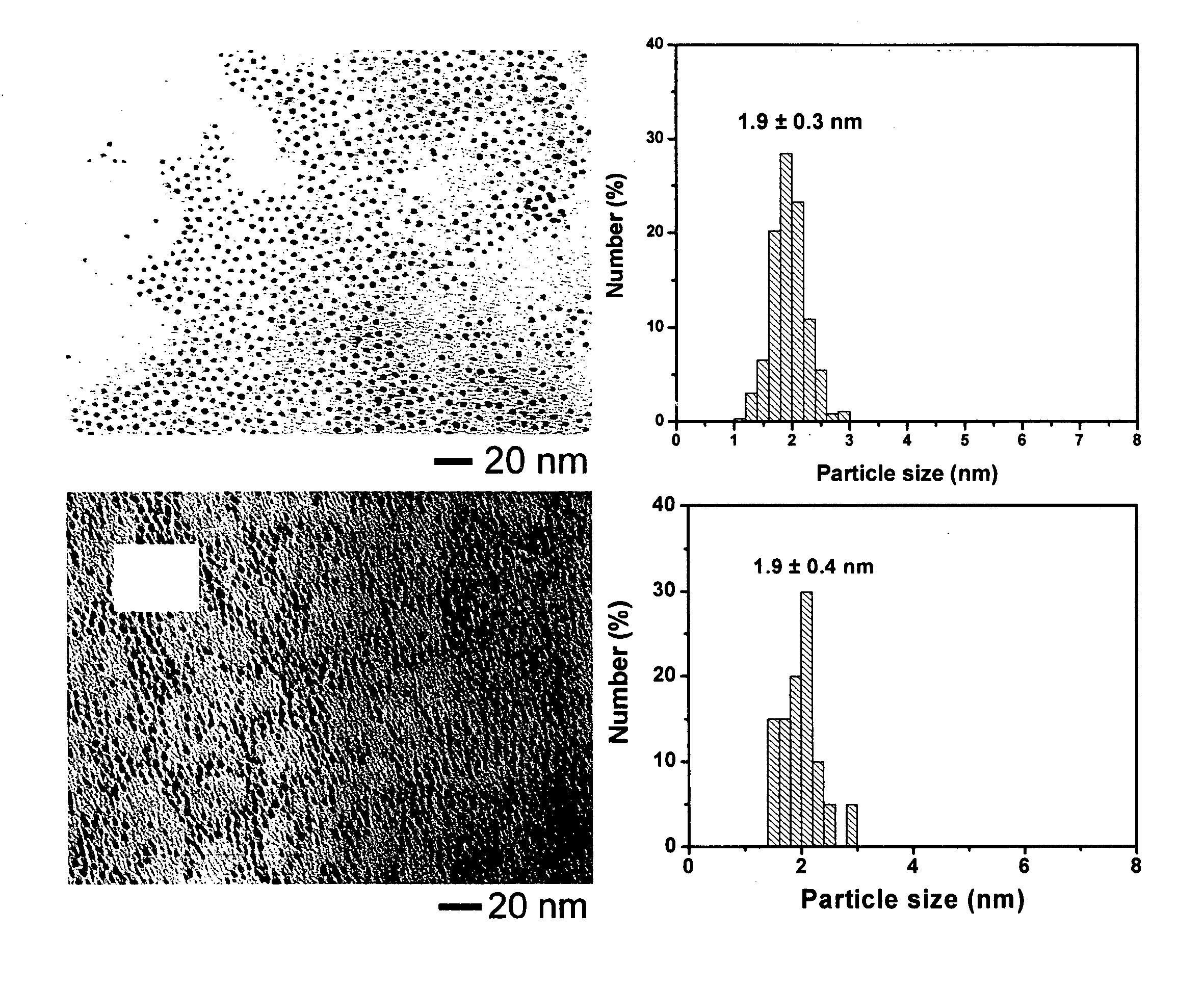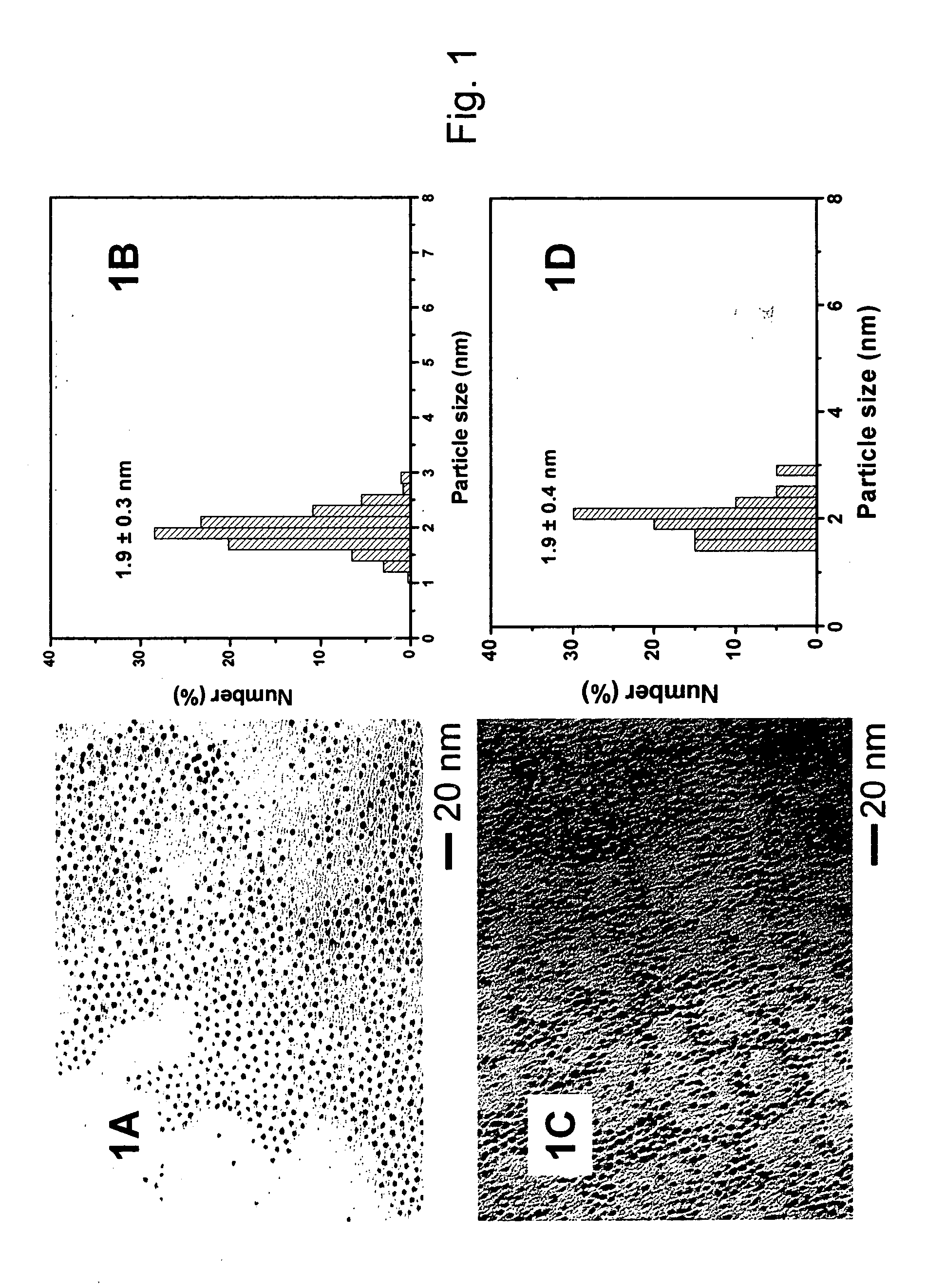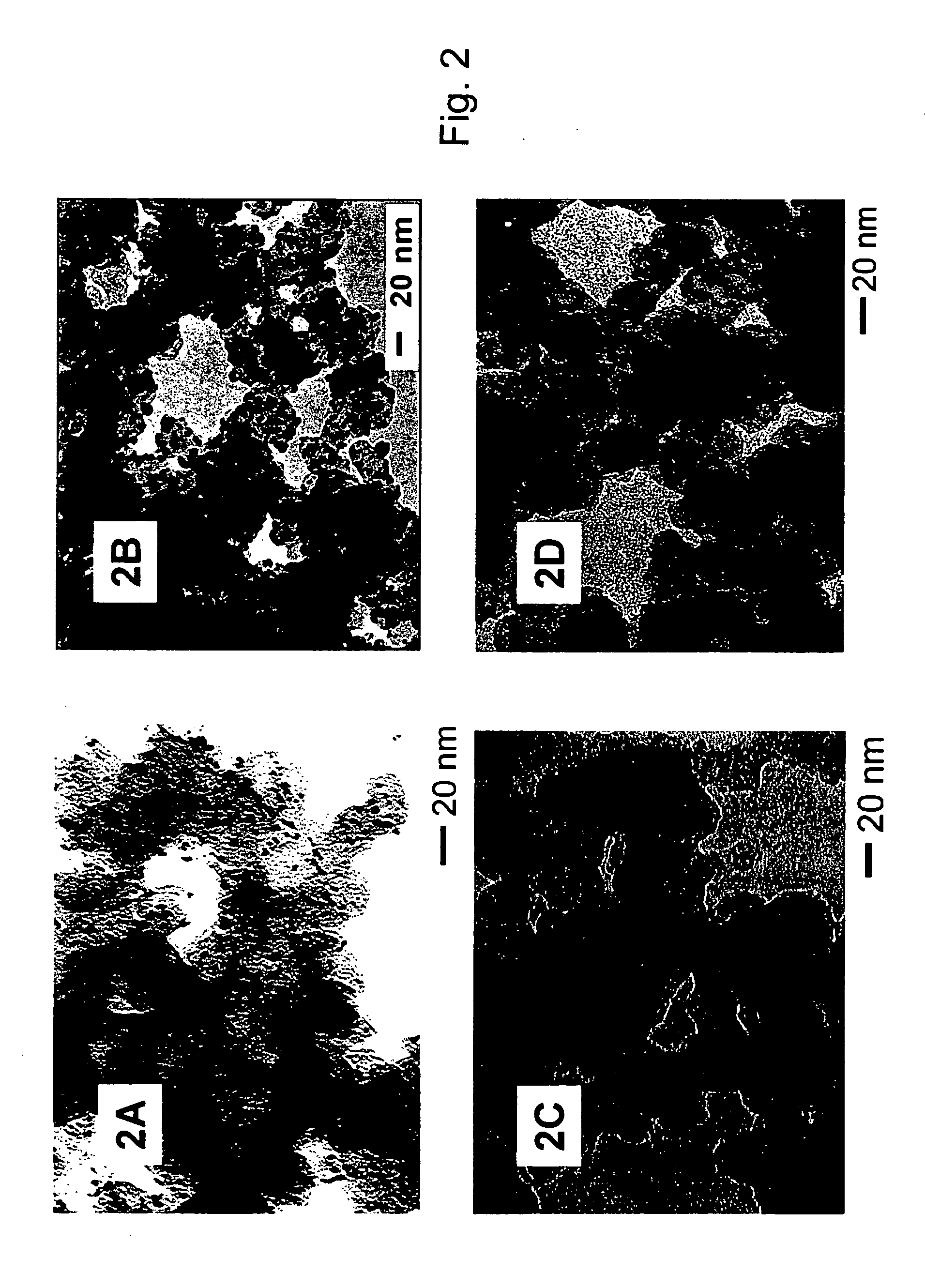Metal and alloy nanoparticles and synthesis methods thereof
- Summary
- Abstract
- Description
- Claims
- Application Information
AI Technical Summary
Benefits of technology
Problems solved by technology
Method used
Image
Examples
example 1
[0088] A three-neck 250 mL flask is charged with 50 mL octyl ether, 0.25 g HDD (1,2-hexadecanediol), 0.20 g Pt(acac)2, 1.0 mL OAM (oleyl amine) and 0.3 mL OAC (oleic acid). During the synthesis process, the mixture is under constant stirring. The mixture is purged with nitrogen while heating to 105° C. to remove residual water. The mixture is then heated to 230° C., and refluxed for 20 minutes.
[0089] The mixture is then allowed to cool to room temperature, and the contents transferred to a larger flask under ambient environment. Ethanol (100 mL) is added to precipitate the reaction product. The reaction product is then dispersed in 30 mL hexane.
example 2
[0090] High surface area carbon black, 140 mg, (Ketjen Black ECP, Lion Corporation, Tokyo, Japan) is suspended in 350 mL hexane, and sonicated for three hours at ambient temperature. The black reaction product (69.5 mg in 25 mL solution) from Example 1 above is added to the carbon black / hexane suspension, and the mixture is sonicated for 30 minutes, followed by stirring for 15 hours. The solvent is removed by purging nitrogen for four to eight hours and the remaining solid is collected and dried under nitrogen.
[0091] The collected solid can then be heated under nitrogen to 400° C. for two hours. The organic shell components can be removed by heating to 280° C. under a 20 / 80 oxygen / nitrogen mixture for 30 minutes. The solid is then heated to 300° C. under a flow of nitrogen for an hour to removal residual oxygen. The temperature is raised to 400° C. and the solid exposed to a flowing 15 / 85 hydrogen / nitrogen for 60 minutes. The solid is then cooled to room temperature.
example 3
[0092] A three-neck 250 mL flask is charged with 120 mL octyl ether, 1.953 g HDD, and 1.014 g Pt(acac)2, under stirring. The mixture is purged with nitrogen while heating to 105° C. to remove residual water. To this mixture is added 1.2 mL OAM, 1.0 mL OAC and 0.68 mL Fe(CO)5, the mixture is then heated to reflux for 40 minutes at 275° C.
[0093] The mixture is then allowed to cool to room temperature, and the contents transferred to a larger flask under ambient environment. Ethanol (300 mL) is added to precipitate a black product. The black product is then dispersed in 150 mL hexane in the presence of 0.6 mL OAM and 0.5 mL OAC, and then precipitated out by adding 300 mL ethanol. The resulting solid has a Pt:Fe ratio of 48:52.
PUM
| Property | Measurement | Unit |
|---|---|---|
| Temperature | aaaaa | aaaaa |
| Fraction | aaaaa | aaaaa |
| Fraction | aaaaa | aaaaa |
Abstract
Description
Claims
Application Information
 Login to View More
Login to View More - R&D
- Intellectual Property
- Life Sciences
- Materials
- Tech Scout
- Unparalleled Data Quality
- Higher Quality Content
- 60% Fewer Hallucinations
Browse by: Latest US Patents, China's latest patents, Technical Efficacy Thesaurus, Application Domain, Technology Topic, Popular Technical Reports.
© 2025 PatSnap. All rights reserved.Legal|Privacy policy|Modern Slavery Act Transparency Statement|Sitemap|About US| Contact US: help@patsnap.com



